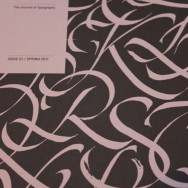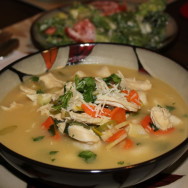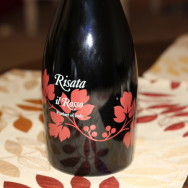Here is the rest of January’s books:
1/16 -17: Freckles (by Gene Stratton-Porter) This and A Girl of the Limberlost
remind me of my childhood and Indiana. I grew up playing outside in our vegetable garden and in Holcombe Gardens on Butler University’s campus, and although my childhood was in a very different era than the setting of these books, I never fail to appreciate the attention paid to the natural characteristics of the land and animal life in that part of the country. These books are a celebration of progress and self-improvement through dedication to the land/nature which is a concept I respect and strive to achieve, but progress and preservation of nature are and historically have been considered incongruous concepts. I recommend it for young adults and adult readers who are interested in early twentieth century regional fiction, or any mid-level or better reader interested in nature.
1/18: After Milk and Song (by Erin Mullikin) This is another South Carolina Poetry Initiative chapbook winner, but it happens to be authored by one of my classmates at Clemson. It appears to be currently unavailable, but if you get the chance to read a copy of it, Mullikin’s poems delve deeply into the loss of a parent and reflection on how pieces of them and the lessons they taught you live on. They are beautifully done, and I highly recommend watching out for more works to come by her.
1/19: Mothers & Shadows (by Marta Traba) This novel was recommended to me by a dear friend who, I believe, studied it in one of her college classes. I’m sure she has more intelligent things to say on the topic than I do, but I did enjoy the story. I couldn’t help but draw comparisons between this and the (post)colonial/Caribbean/”ethnic” literature I’ve encountered and studied in the past. It isn’t a happy read, but I think it explores a lot of interesting aspects of human nature, human sexuality, and how those two things influence and play into (a country’s) history. It’s definitely more of an academic read, but I do recommend it if any of those topics interest you.
1/20: I made an exception to my rule of “books” each day because I am a dedicated reader of the magazine Bon Appetit (the website, app, and the recipe archive are also incredible, but I stubbornly support print media). I read each issue cover to cover (including all of the food and drink-related ads) the day that it arrives in the mail. So this was February 2013′s issue.
1/21: Mayakovsky’s Revolver: Poems (by Matthew Dickman) What can I say, I really love Matthew Dickman’s work. Also, after meeting him at the Clemson Literary Festival several years back (when I was still a undergrad student director), I must say he is a really nice guy! Mayakovsky’s Revolver, his second book, takes a turn for the dark and emotional topic of his brother’s suicide. I think he handles the topic with great tenderness and tactful sentimentality, but it left me more thankful for my siblings with all the complications of those relationships than sad at the (eventual) loss of them. Although I would recommend his first book, All-American Poem
, over this one, I still recommend both.
1/22: The Remains of the Day (by Kazou Ishiguro) I recommend reading all of Ishiguro’s novels. I really respect him as an author, and the wide range of topics he tackles. I am somewhat enamored with literature about the social reorganization of class in England following WWI, and The Remains of the Day falls into this category.
1/23: Steal Like an Artist (by Austin Kleon) I picked up this book on a whim because it reminded me so much of one of my poetry workshop professors in college who encouraged us to carry around notebooks and jot down observations about the people around us and overheard conversations so that we could revisit these scenes for inspiration and details when we sat down to write. This recommends similar practices, but the concepts are pretty straight forward. The only difficult part is establishing the habits required to do this. I’d say this is a borrow-from-the-library kind of book if you read it at all.
1/24: Ghost World (by Daniel Clowes) I first read this novel as part of my Survey of the American Novel course, which explored the evolution of novels which shaped the American novel and then were written by Americans. The class was really great, but when we got to Ghost World, my first experience with a graphic novel mind you, I was pretty disenchanted with what the American novel has become. I really like exploring the differences between and merging of story-telling mediums, but I found this graphic novel to be particularly trying to read. I really feel like nothing happens at all, and the characters are all pretty nasty. I had hoped that re-reading it would help me to appreciate something more about it, but that was not the case. It is blessedly short, but I still wouldn’t encourage any one to read it, especially if they aren’t familiar with the genre of graphic novels.
1/25: The Forgotten Garden (by Kate Morton) This novel was surprisingly interesting. There is mystery, history, and family. I think of it as something that could easily be classified as a good “beach read,” but I’d recommend it for leisurely reading any time of the year. Do be warned, however, that the female characters steal the scenes and the male characters are severely 2-dimensional so my recommendation here is primarily aimed at women.
1/26: Scrumptious Pies & Tarts (by Linda Collister) This is a cookbook I’ve had for a long time and rely on for go-to tart recipes, but I found myself re-reading the entire book when I pulled it down to look up a mango tarts recipe for a friend. If you are interested in baking, this is a great way to master pie and tart crusts. They are not the easiest of recipes, but once you master the basics here, you can handle anything pie and tart-related!
1/27: The Last Unicorn (by Peter S. Beagle) This is a really quaint and beautiful book. I recommend reading Patrick Rothfuss’ review of this novel, because his suggestion along was enough to convince me to buy the novel. I love the heroism, the value and delicacy of life, and the resolution of the story. It really is a great novel, and one that I think can be read repeatedly with more learned each time. I definitely recommend checking it out.
1/28: The Swerve: How the World Became Modern (by Stephen Greenblatt) Non-fiction really isn’t my preferred reading material, but I am making a concerted effort to branch out. I thought The Swerve, with its Pulitzer Prize, would be a good possibility. I won’t go so far as to say that I was wrong, but it was definitely too dry to read while sleep-deprived. It was slow going, but informative and interesting enough. I’m on the fence about recommending it, so I guess I’ll say this: check it out is you’re into historical essay non-fiction.
1/29: How to Live Safely in a Science Fictional Universe (by Charles Yu) This is one of the more interesting and highly-meta novels that I’ve read in a long time. It is written with a tone of complete sincerity, formatted (at the level of chapters anyway) as appendices to a larger (not included) document on surviving in said universe. There are a few charts, and the narrator treats time travel and other science fictional topics as real, scientific topics. It is quirky and amusing, but also tells a really touching story about a family trying to survive (or more specifically, live safely perhaps?) in the science fictional universe. I recommend it for any science and technology-minded and/or geeky and/or nerdy readers.
1/30: The Book of Three (by Lloyd Alexander) This is the first in the Pyridian Chronicles series, which was recommended to me by a dear friend. It definitely falls into the category of young adult fiction, and reads like a very simplified version of Tolkein’s Middle Earth and cast of characters. This is a quick read, but really fun.
1/31: The Black Cauldron (by Lloyd Alexander) This is the second novel in the Pyridian Chronicles series, and it is more unique in it’s story line than the first but remains rather simplistic but clearly influenced by Tolkein.
Stay tuned for February’s list in about a month!






